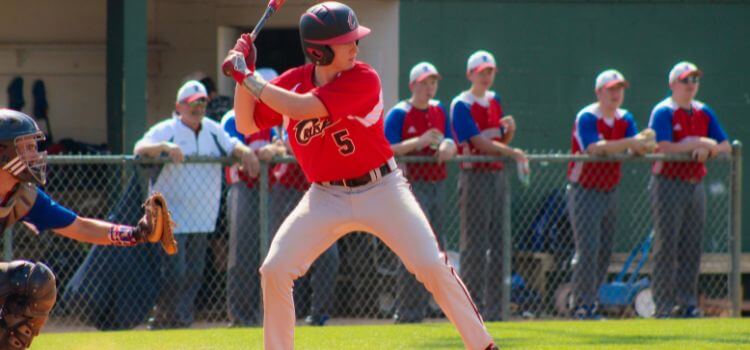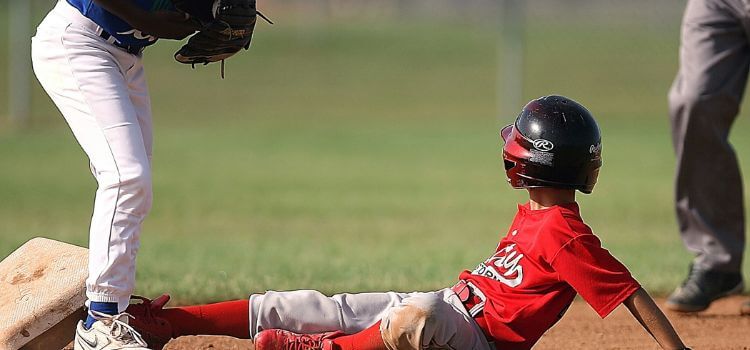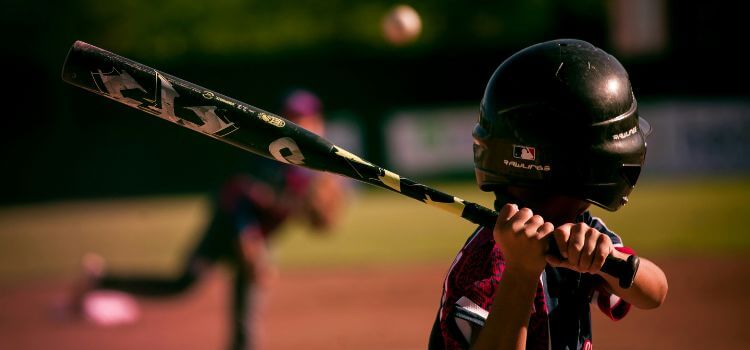As an Amazon Associate, I earn from qualifying purchases.
Getting drafted into Major League Baseball (MLB) is a dream for countless aspiring baseball players. However, securing a spot in one of the most popular competitive sports leagues requires a more ethically significant role than just natural talent. It involves consistent effort, skill refinement, and strategic planning. Here’s a comprehensive guide on how to increase your chances of getting drafted by an MLB team.
What is the MLB Draft?
The MLB Draft, also known as the Rule 4 Draft, is an annual event where MLB teams select insight into the eligible players to join their organizations. This process is a critical point for high school and college players who aspire to transition to professional baseball. The draft features 20 rounds, and each of MLB’s 30 teams has a selection for each round.
Eligibility Requirements for the MLB Draft

To be perfectly eligible for the MLB Draft, players must meet several essential specific criteria.
Understanding these detailed insights into the requirements is essential for players looking to enter the draft:
Age: Players must be 17 years old otherwise not eligible.
Education Level: High school players who have graduated are eligible. College players are eligible after three years at a four-year college or upon turning 21.
Previous Draft Status: Players must not have signed a contract with another MLB team in a previous draft.
Building a Strong Baseball Foundation

Develop Skills at a Young Age
Starting baseball at a young age can build fundamental skills, and early exposure to the sport provides a head start. Playing in significantly organized leagues, such as Little League Baseball or local travel teams, helps young players learn essential ethical techniques.
Participate in High School Baseball
Scouts often begin to notice players in high school baseball. Standout performances in high school can draw the attention of college scouts and, eventually, MLB scouts. To stand out, maintain a high batting average, demonstrate strong pitching capabilities, and focus on defensive skills.
Excel in College Baseball
Playing college baseball at a Division I school increases your visibility to MLB scouts. NCAA baseball provides exposure, intense competition, and high-quality coaching that builds a player’s skills, making it easier to transition to professional baseball.
Showcase Events and Tournaments

Attending showcases and tournaments is one of the most effective ways to get noticed. These events gather talent from across the country and provide players with a platform to demonstrate their skills in front of scouts and coaches. Here are some prominent showcase opportunities:
Perfect Game Showcases
Perfect Game showcases offer high-quality exposure to young players looking to advance in the game. These showcases draw scouts and recruiters from colleges and MLB teams, allowing players to demonstrate their abilities.
USA Baseball National Team Identification Series
The USA Baseball NTIS provides an essential detailed extensive unique platform for players to showcase their skills and to get identified for the national team. Playing at this level showcases a player’s skill, determination, and ability to play against top competition.
Prospect Camps and Invitational Tournaments
Many colleges and universities host prospect camps where high school players can show off their talent in front of college and MLB scouts. Participating in invitational tournaments sponsored by MLB or college organizations can further boost a player’s visibility.
Refining Technical Skills

Focus on Position-Specific Skills
Scouts pay close attention to position-specific skills. Each position has a unique set of requirements and expectations, and players should focus on excelling in their specific roles.
Pitchers: Focus on control, velocity, pitch variety, and mental toughness.
Catchers: Emphasize arm strength, quick reaction time, and effective communication with pitchers.
Infielders and Outfielders: Build arm strength, defensive range, and accurate fielding.
Enhance Physical Fitness and Conditioning
Physical conditioning is crucial for standing out to scouts. Players should focus on strength, speed, and flexibility training to perform at their best.
Strength Training: The essential part of developing upper and lower body strength is to improve batting power and throwing distance.
Speed and Agility: Focus on quick acceleration and the ability to react swiftly in different scenarios.
Flexibility: Crucially enhances mobility, allowing players to prevent injuries and significantly properly perform at a higher level.
Developing a Strong Batting Technique
Batting is a fundamental skill that every MLB hopeful should master. Scouts assess a player’s batting stance, swing mechanics, and ability to hit for power and average. Regular practice with professional guidance can significantly improve batting skills.
Mental Preparation and Game Awareness
In addition to physical crucial skills, mental toughness is critical for pleasure role success in baseball. Players need to focus on developing resilience, confidence, and adaptability.
Stay Composed Under Pressure: Maintaining calm and focus during crucial game moments is a desirable trait.
Strong Game Awareness: Understanding strategies, anticipating plays, and reacting to game developments demonstrate a high baseball IQ.
Building a Strong Network and Reputation

Networking with coaches, former players, and trainers can provide valuable insights and connections within the baseball community.
Seek Guidance from Experienced Coaches: Knowledgeable coaches can guide you through the draft process, give advice on improving your skills, and help with networking.
Work on Your Reputation: Show respect for teammates and coaches, be a team player, and maintain a strong work ethic.
Creating an Impressive Player Profile
A comprehensive player profile can make it easier for scouts to evaluate your skills. Include your batting average, pitching stats, physical attributes, and notable achievements in tournaments or showcases.
Highlight Key Stats and Achievements: One of the most particular concerns make sure to list accomplishments that showcase your glamorous skills.
Video Footage: Create highlight reels showing different aspects of your game, such as fielding, hitting, and pitching.
The Role of MLB Scouts and the Scouting Process

MLB scouts identify talent at high school, college, and international levels. They observe a player’s technical skills, mental game, and physical attributes. Scouts also look for players with dedication, work ethic, and a positive attitude, which can contribute to a strong team dynamic.
Attend Open Tryouts and Combine Events: MLB teams occasionally host open tryouts where players can demonstrate their skills.
Be Consistent: Scouts pay attention to a player’s performance over time. Consistency can often be the deciding factor in whether a player gets drafted.
The Importance of Staying Persistent and Resilient
The journey to the MLB draft is highly competitive and requires resilience. Setbacks are common, but staying focused and committed to improving your game is essential for success. A few players are not properly drafted on their first attempt, but persistence can pay off.
Final Thought
Securing a spot in the MLB Draft requires a mix of skill, preparation, and perseverance. By starting young, honing technical and mental skills, attending showcase events, and building a solid network, aspiring players can maximize their chances of being drafted. Consistently work on your game, remain focused, and, most importantly, enjoy the journey toward a career in professional baseball.
As an Amazon Associate, I earn from qualifying purchases.
Leave a Reply